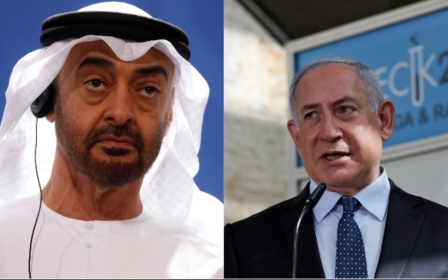Kushner's US team heads to Saudi Arabia amid Gulf tensions over Iran scientist killing

White House senior adviser Jared Kushner and his team are heading to Saudi Arabia and Qatar this week for talks in a region simmering with tension after the killing of a top Iranian nuclear scientist, Mohsen Fakhrizadeh, according to Reuters.
A senior administration official said on Sunday that Kushner was to meet Saudi Crown Prince Mohammed bin Salman in the Saudi city of Neom, and the emir of Qatar in that country in the coming days.
Kushner will be joined by Middle East envoys Avi Berkowitz and Brian Hook and Adam Boehler, chief executive of the US International Development Finance Corporation, Reuters reported.
A week ago, bin Salman had met with outgoing US Secretary of State Mike Pompeo and Israeli Prime Minister Benjamin Netanyahu, also in Neom.
At that meeting, bin Salman had been reluctant to accede to demands from Netanyahu to agree to an attack on Iran, a Saudi source with knowledge of the meeting told Middle East Eye.
Pompeo did not commit to an attack on Iran's uranium processing installations, the same Saudi source said.
Speaking on condition of anonymity, the source said: "In the meeting, Netanyahu was advocating hitting Iran. Pompeo did not commit either way."
Bin Salman's reluctance was said to be for two reasons. Firstly, he interpreted two recent attacks on Saudi oil targets as warning messages from Iran delivered by proxies.
Secondly, he doubted the US response under President-elect Joe Biden's incoming administration, in the event of a prolonged series of strikes and counter strikes, believing Biden's first response to a Gulf crisis would be to de-escalate before negotiating a nuclear deal with Tehran.
On Saturday, Iranian President Hassan Rouhani accused Israel of killing Fakhrizadeh, vowing revenge.
"Once again, the evil hands of global arrogance and the Zionist mercenaries were stained with the blood of an Iranian son," Rouhani told a televised cabinet meeting.
Accused by the West and Israel of being behind alleged attempts to develop a nuclear weapon, Fakhrizadeh had been killed when a gunman ambushed him in his car.
Normalisation deals
Kushner and his team have helped to negotiate normalisation deals between Israel and Bahrain, the United Arab Emirates and Sudan since August.
The official said they would like to advance more such agreements before President Donald Trump hands power to President-elect Joe Biden on 20 January.
US officials believe enticing Saudi Arabia into a deal with Israel would prompt other Arab nations to follow suit.
But the Saudis do not appear to be on the brink of reaching such a landmark deal and officials in recent weeks have been focusing on other countries, with concern about Iran's regional influence a uniting factor.
Biden has said he will rejoin the international nuclear pact with Iran that Trump quit in 2018 - and work with allies to strengthen its terms - if Tehran first resumes strict compliance.
The senior administration official, speaking to Reuters on condition of anonymity, declined to give more details of Kushner's trip for security reasons.
The official said Kushner met at the White House last week with the Kuwaiti Foreign Minister Sheikh Ahmad Nasser Al-Mohammad Al-Sabah. Kuwait is seen as critical in any effort to resolve a three-year rift between Qatar and other members of the Gulf Cooperation Council.
Saudi Arabia, Egypt, Bahrain and the United Arab Emirates, which comprise the GCC, cut diplomatic ties with Qatar in 2017 and imposed a boycott over allegations that Qatar supported terrorism, a charge it denies.
Middle East Eye delivers independent and unrivalled coverage and analysis of the Middle East, North Africa and beyond. To learn more about republishing this content and the associated fees, please fill out this form. More about MEE can be found here.






